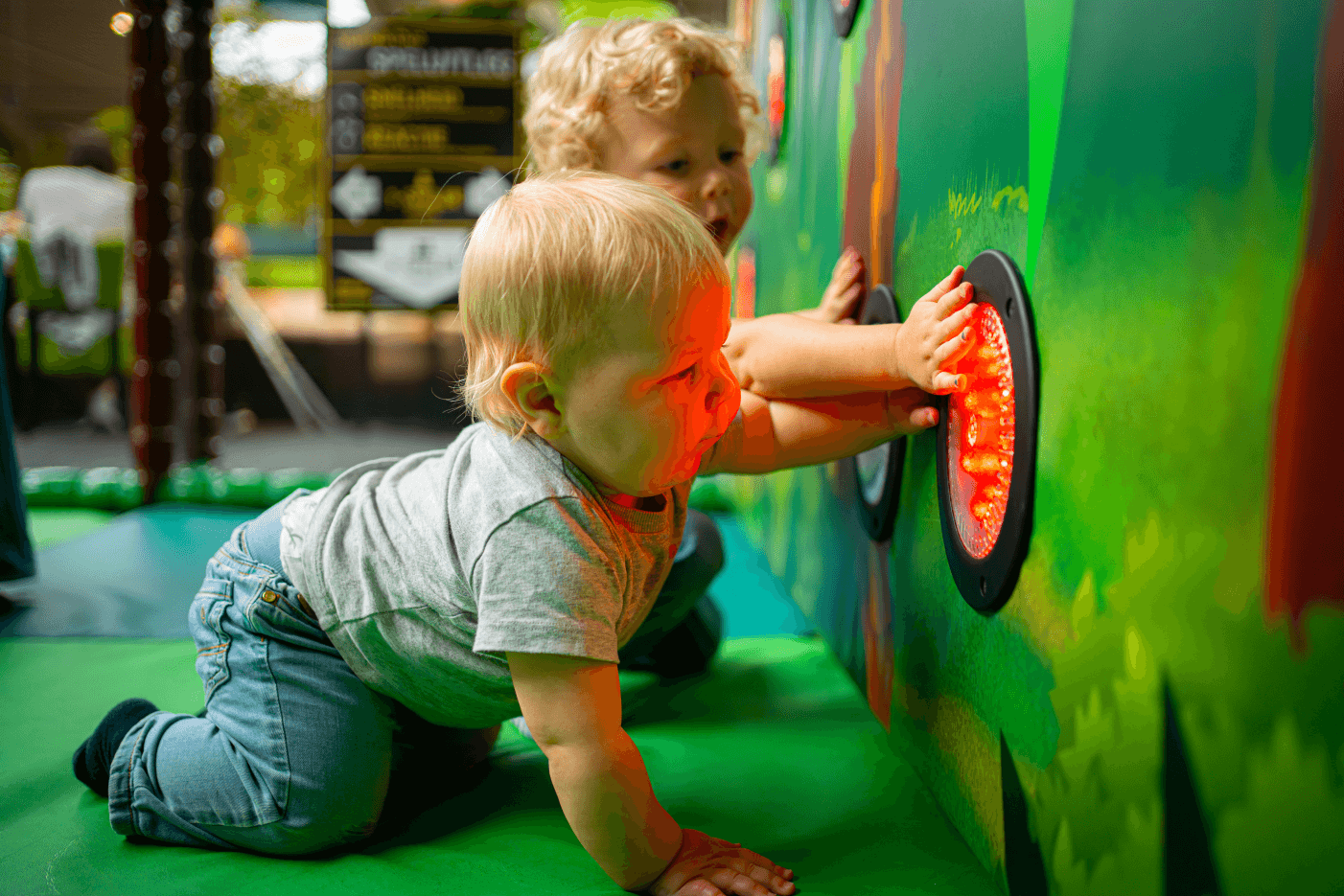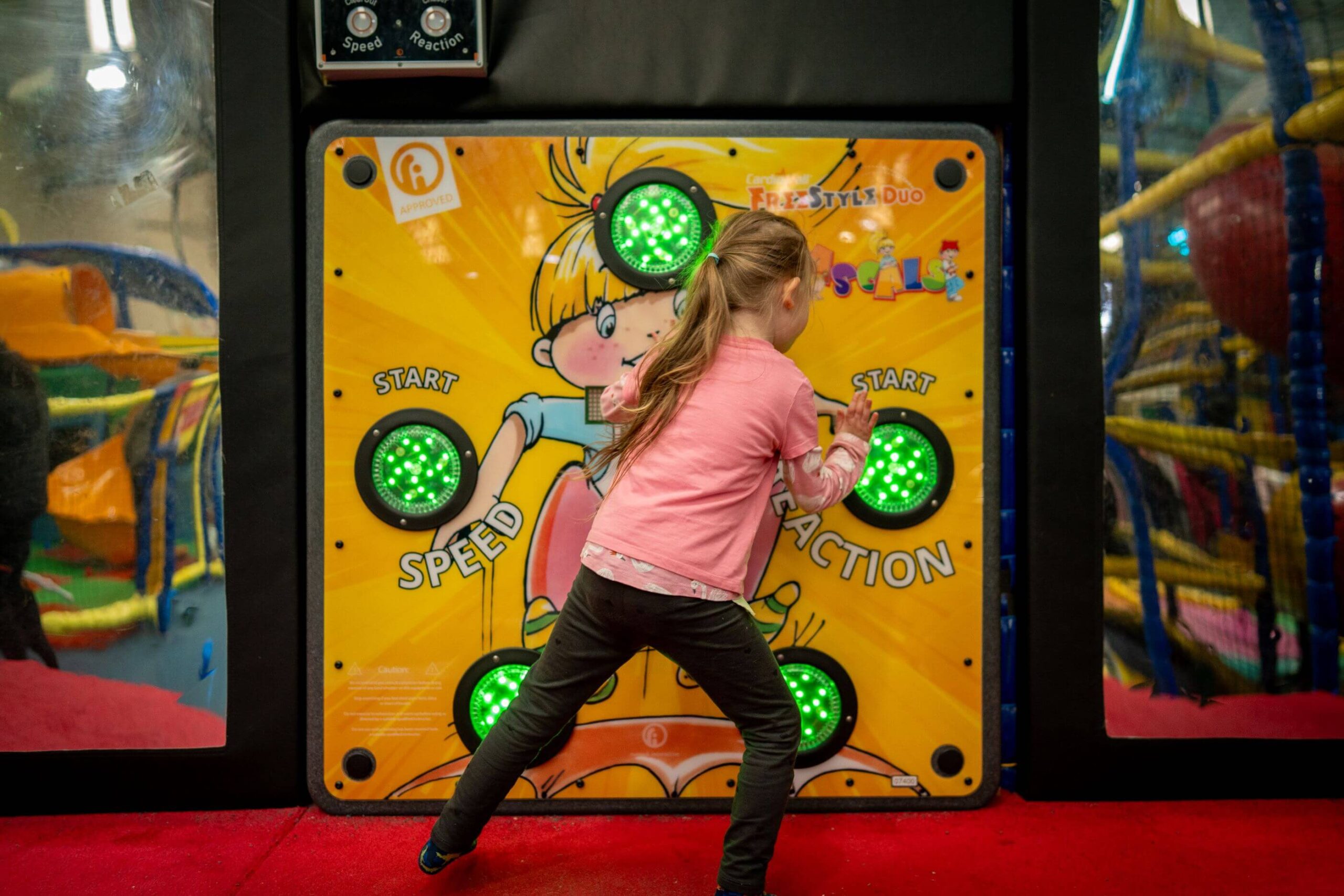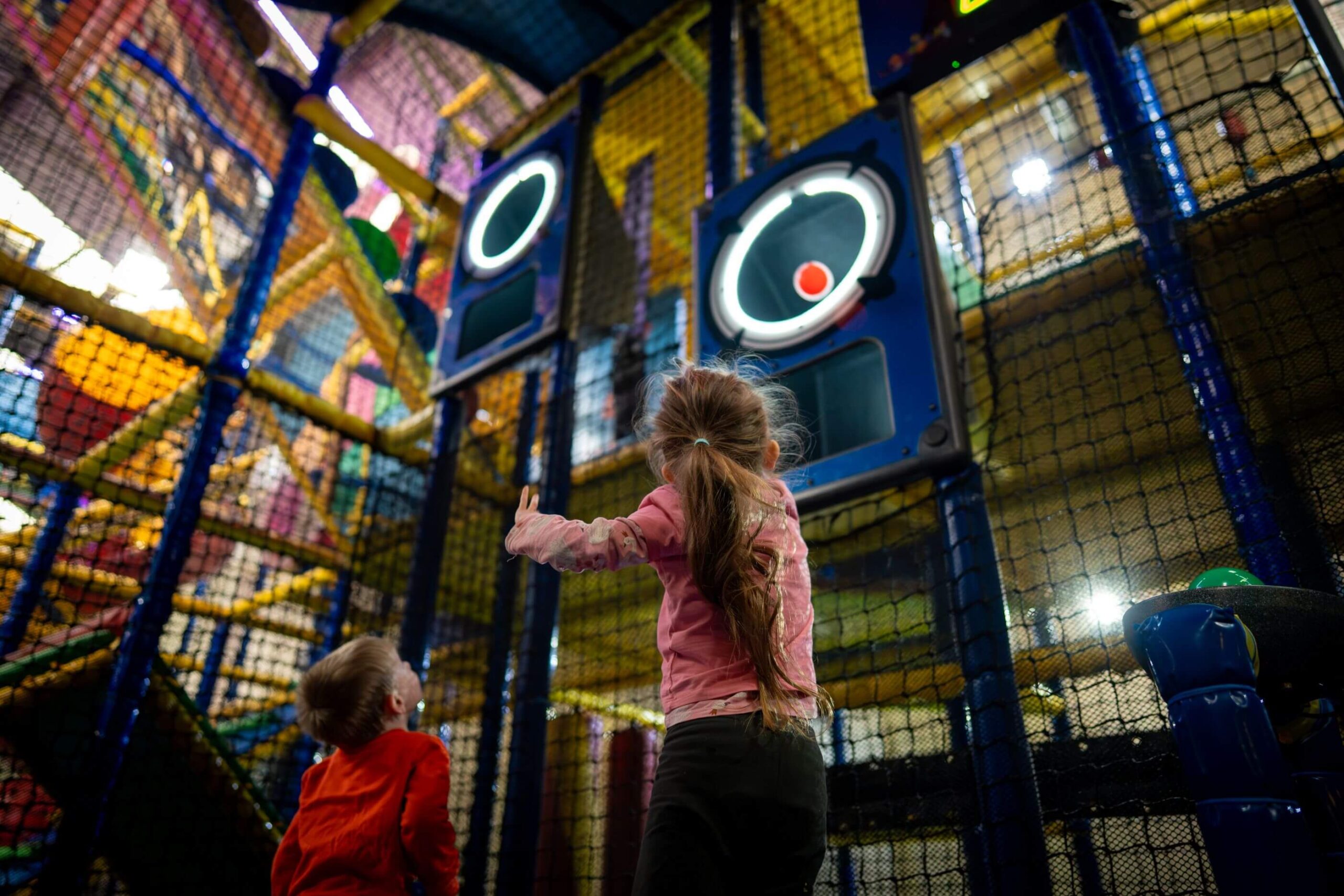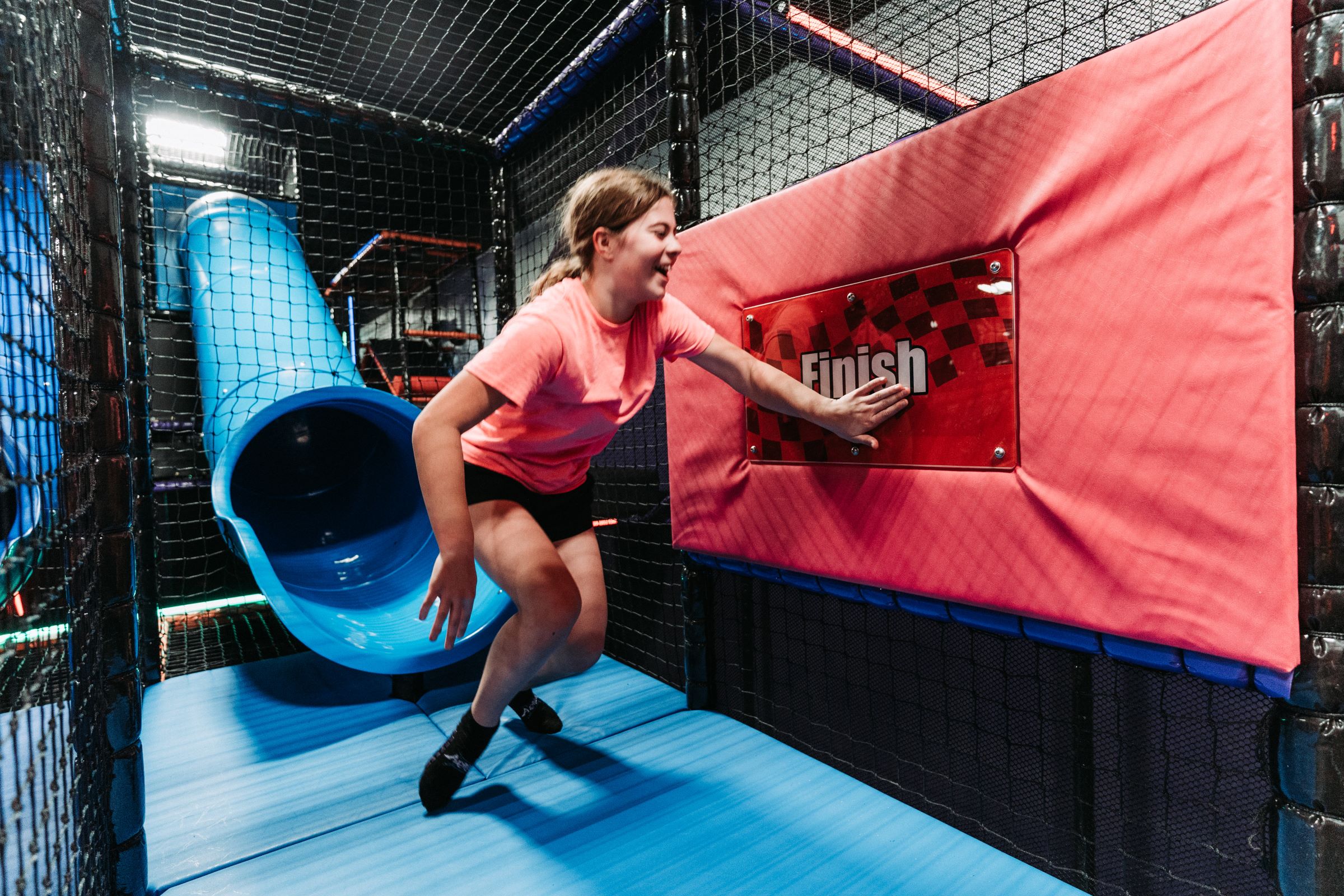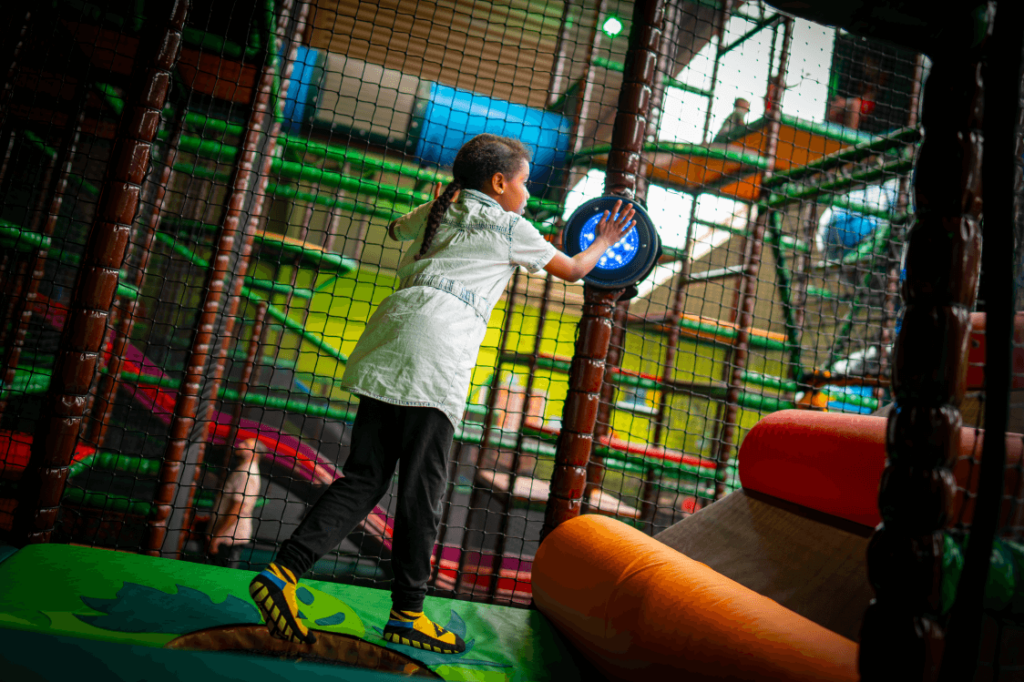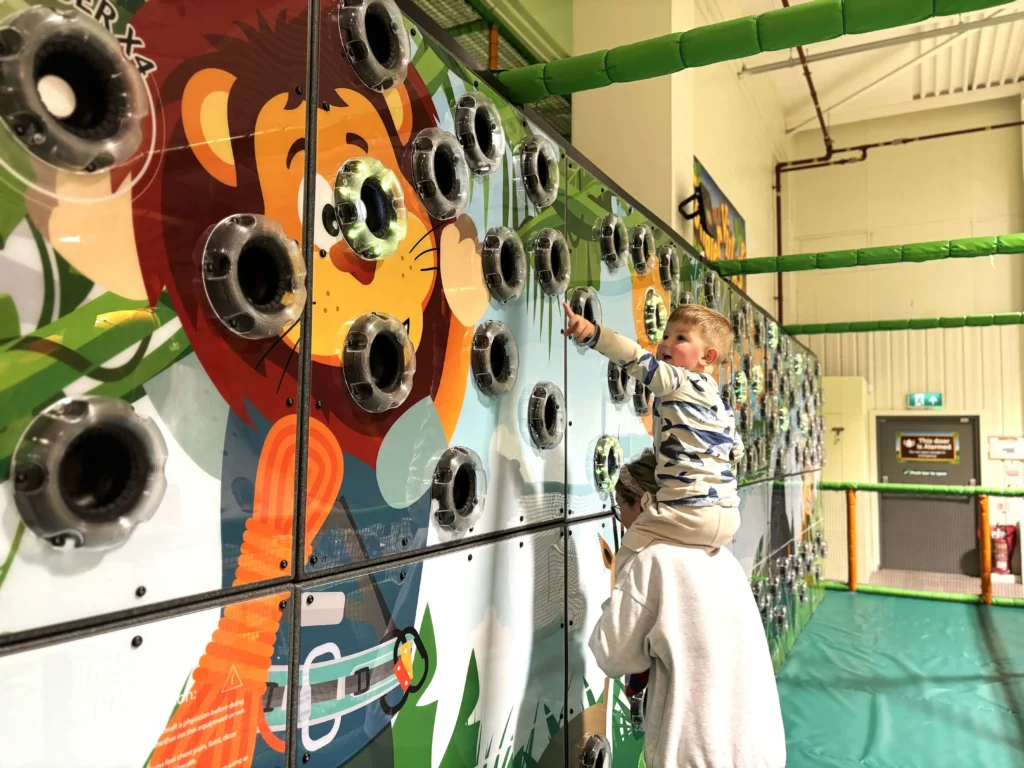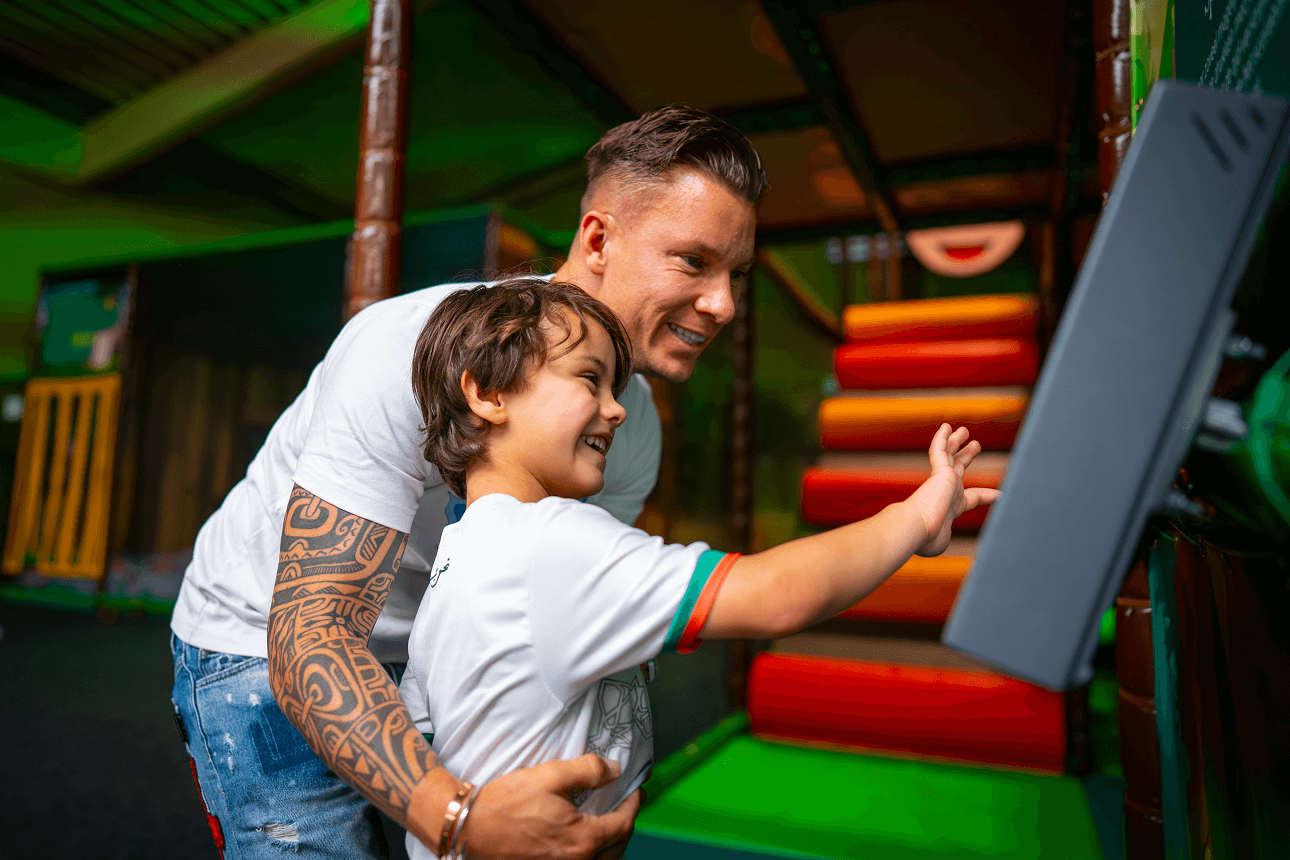
Engaging Play Spaces: Designing Safe Indoor Play That Captivates, Includes and Lasts
From attraction choice and playground layout design, to lighting and sensory experience, there is a lot to consider when designing indoor play spaces with engagement in mind.
In this blog, we cover common themes for indoor playgrounds, what to consider, and how soft play environments are becoming more creative and versatile.
Balancing Fun with Safe Innovation
For indoor playground operators, the challenge is clear: how do you create spaces that are both thrilling and safe? It starts with the fundamentals. Every bolt, bounce and barrier must align with safety standards, including ASTM F2970 and EN 1176. But compliance doesn’t have to mean compromise. With the right indoor playground equipment and layout, safety can be seamlessly woven into the excitement.
Interactive soft play installations, such as reaction walls and interactive target zones, bring energy and engagement while still respecting fall zones and containment protocols. And when staff members are trained to spot hazards instinctively, safety becomes part of the culture, not just a checklist.
Designed for Target Age Group: Equipment that Meets Developmental Needs
Creating Distinct Zones for Different Age Groups
Not every child plays the same way. That’s why segmenting your space by age is essential:
- Toddler zones need soft play equipment with enclosed areas and sensory features. Think padded pods and gentle lighting.
- For juniors, agility games and climbing walls build coordination and confidence.
- For later childhood should dial up the challenge with competitive features like reaction-based gameplay and score tracking.
Aligning Equipment with Developmental Goals
Interactive indoor playgrounds thrive when play aligns with developmental milestones. Toddlers benefit from tactile surfaces and movement-based learning. Pre-teens respond to teamwork and problem-solving. Older children want autonomy, achievement and digital feedback.
The right mix of interactive soft play and age-appropriate challenges keeps everyone engaged and coming back.
Immersive Play Spaces That Spark Imagination and Loyalty
Transform ordinary play into extraordinary adventures with themed environments that engage all the senses.
From jungle expeditions to space missions, cohesive storytelling and visual design create memorable, multi-age experiences. Add lighting, sound, and interactive tech to boost dwell time and encourage repeat visit. Plus, don’t forget those ‘Instagrammable’ moments that drive word-of-mouth.
Mapping Movement and Maximising Space in Play Environments
Guiding Movement with Strategic Layouts
Flow matters. Wide corridors, intuitive paths and transparent barriers help guide visitors naturally. Group related activities together and use interactive installations as waypoints to draw users deeper into the space.
Smart layout design keeps energy high and increases throughput, whilst making parents feel at ease with visibility of all soft play areas.
Maintaining Sensory Balance
Separate high-energy zones from calm areas to avoid overstimulation. Use acoustic panels and lighting contrasts to reinforce the distinction. Bright, dynamic lighting suits active zones, while warm tones soothe in quieter corners. This is particularly important for guests with special educational needs.
Accommodating Families
Parents need comfort and visibility. Wide walkways, accessible viewing platforms and modular seating make supervision easy. Toilets should be close to play zones, and line-of-sight design boosts both safety and parental satisfaction.
Designing Play for Everyone: Inclusivity and Accessibility Features
Going Beyond Compliance
Accessibility should be built in, not bolted on. Wheelchair ramps, transfer platforms and multi-sensory panels ensure every child can participate. Sensory rooms offer a retreat for neurodiverse users, extending visit times and deepening engagement.
Designing for Equity, Not Just Entry
It’s not just about getting in – it’s about getting involved. Pair climbing walls with touch-sensitive games so siblings with different abilities can play side by side. Inclusive design creates shared experiences and strengthens family bonds.
Our interactive attractions, such as FreeStyle Duo, SkyPods and TrailBlazer are family favourites, offering interactive competition for a range of ages and abilities.
Seamlessly Blending Play and Tech: Integration of Technology and Interactivity
Immersive Environments Through Projection and Sound
Motion-sensing floors, reactive lighting and sound-activated zones turn play into performance. These features respond to movement, creating dynamic environments that evolve with the user. Play that is interactive, responsive and immersive means a more repeatable experience.
Engaging Parents Through Smart Digital Touchpoints
Parents want to be involved. Digital dashboards let them monitor progress, join team games and share achievements – like our Freedom Gaming tag challenge arena, with digital scoreboards and game set up.
Consider smart apps to streamline booking, loyalty tracking and photo sharing.
Indoor Playground Case Studies
Durability Built to Last: Smart Maintenance in Modern Indoor Playgrounds
High Traffic, High Standards
Choose materials that withstand wear and tear. Anti-microbial vinyl, powder-coated steel and tamper-proof digital components reduce maintenance and extend lifespan. Rugged Interactive products are all designed to be easily cleaned, durable and long-lasting.
Maintenance as a Ritual, not a Reaction
Daily, weekly and monthly routines keep everything running smoothly. Use analytics from interactive equipment to predict wear and plan interventions before issues arise. Proactive maintenance ensures long-term reliability and guest satisfaction.

